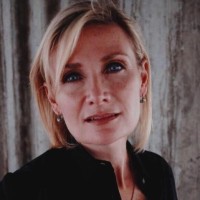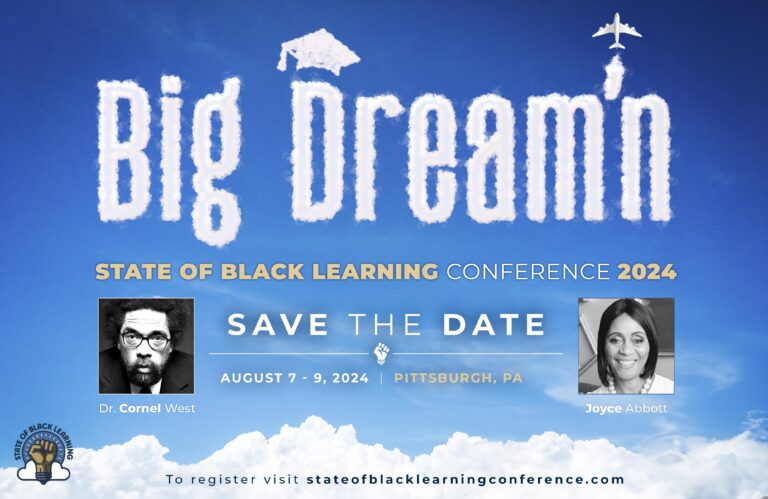For educators, every day brings new challenges. Teachers and students face difficult moments inside and outside of classrooms. Administrators grapple with how best to support teachers and how to interact with parents, who are often facing crises of their own.
Add to this the impact of systemic racism on teachers and learners of color, and the lingering impact of the pandemic. The result, too often, is burnout and exhaustion. And as educators struggle under the weight of these circumstances, the less-than-effective status quo remains in place at too many schools across America.
These hurdles would be easier to surmount if educators could pick up a phone and instantly get encouragement and advice from experienced mentors and hear fresh ideas from creative partners in other educational settings.
When K. Chase Patterson and his team at the Urban Academy Charter School began designing the State of Black Learning Leadership program, that’s the future they envisioned.
They set a goal of gathering educators from across the spectrum of learning spaces – public schools, charter schools, out-of-school-time settings and more – and connecting these teachers and administrators. They would give these fellowship participants enough time and space to gather in person, so they could build authentic relationships and begin sharing knowledge.
Most crucially, they would steep these fellows in readings and discussions to spark a deeper understanding of the lives of today’s Black learners and teachers – and a broader view of what their own leadership could look like.
With that vision in mind, the Urban Academy sought and earned a 2023 Moonshot Grant from Remake Learning.
One year later, the group of fellows has become a thriving, connected community of change-makers who are launching into this new school year with fresh inspiration and a commitment to changing the lives of Black learners and Black teachers.

Dr. Tamara Sanders-Woods, principal at Pittsburgh Colfax K-8, is one of those change-makers. She’s been an educator for nearly a quarter-century but has never stopped being a learner.
“I have always been one of those nebby teachers that would always peek in somebody’s classroom,” Sanders-Woods says. “So as an administrator, I love peeking into other buildings, other schools, talking to other administrators to see: What exactly are you doing here? Tell me two things that are working in your building.”
By becoming a State of Black Learning fellow, she says, “that’s what I’ve been able to see.”
A YEAR OF PROGRESS
Fellowships were granted to teams of three, with the requirement that the team include someone who was a decision-maker at their organization. That way, discoveries made during the fellowship process wouldn’t just remain theoretical. Something could actually happen.
The group of fellows met first online, then gathered in person for a few transformative days in February at the Lone Rock Retreat Center in Boulder, Colorado. They had another in-person retreat in May at Atlanta’s Morehouse College.
Their discussions focused on a carefully chosen group of readings – essays by James Baldwin and Maya Angelou, the Rev. Martin Luther King Jr.’s letter from Birmingham Jail, a story about Ella Baker’s transformative student organizing during the Civil Rights Movement, and even the works of Hobbes and Machiavelli.
Throughout this year, the discussions have explored key questions: What are we envisioning for our leadership? What vision do we have for our work? And what is the legacy we want to leave behind?
The in-person retreats allowed all the participants “to get past the assumptions that we had about each organization, each place in education where we’re coming from,” Sanders-Woods says.
Although single-day gatherings and online interactions can be useful, she says, “you don’t get the true essence of a person until you’ve spent some days together. Then we can be authentic with each other – our true self, our true feelings, our true thoughts about what we’re passionate about in education comes out.”
One especially useful experience, she says: having “informal conversations with charter schools that are not ‘us against them.’ It is us against trying to get our kids back from the pandemic, and even the damage that has happened to them previous to the pandemic – the curriculum harm, the policies that have hurt students, especially Black and brown kids in school.”
The retreats have also produced deep listening opportunities for Sanders-Woods and her teachers: “Just hearing some of the things that they go through, in trying to advocate for kids in that space and being one of not a lot of African Americans in that field – it was healing for them, as well.”
THE STATE OF BLACK LEARNING SUMMIT AND BEYOND
The fellows will meet in person once more to present a panel at the eighth annual State of Black Learning Summit, which takes place Aug. 7-9 at multiple locations in Pittsburgh. This year’s theme is Big Dream’n, something the fellows have been doing all year.
The summit offers “a wide range of opportunities for educators to tap in and understand how they can be effective on behalf of the Black students that they serve, which has a ripple effect on the other students in their classroom,” Patterson says.
Sanders-Woods always looks forward to the summit as “a week of just reset, music and motivation.” But this year, she’s especially excited to present with her fellowship cohort and share their experiences.
Patterson agrees: “I’m looking forward to how they will entice the interest of other educators in the space,” he says, “and ultimately impact and affect thousands of students across the country.”
And after the summit ends, Sanders-Woods is looking forward to implementing new professional development at her school based on her fellowship experience. She’s also glad that her new colleagues are now just a phone call or text away, ready to share their varied perspectives to uplift Black learners throughout the Pittsburgh region and beyond.
“There’s value in every school, in every district,” Sanders-Woods says. “We’re all on the same team. And our ultimate goal is to see our children grow.”
Authored by

Melissa Rayworth
Melissa Rayworth has spent two decades writing about the building blocks of modern life — how we design our homes, raise our children and care for elderly family members, how we interact with pop culture in our marketing-saturated society, and how our culture tackles (and avoids) issues of social justice and the environment.
